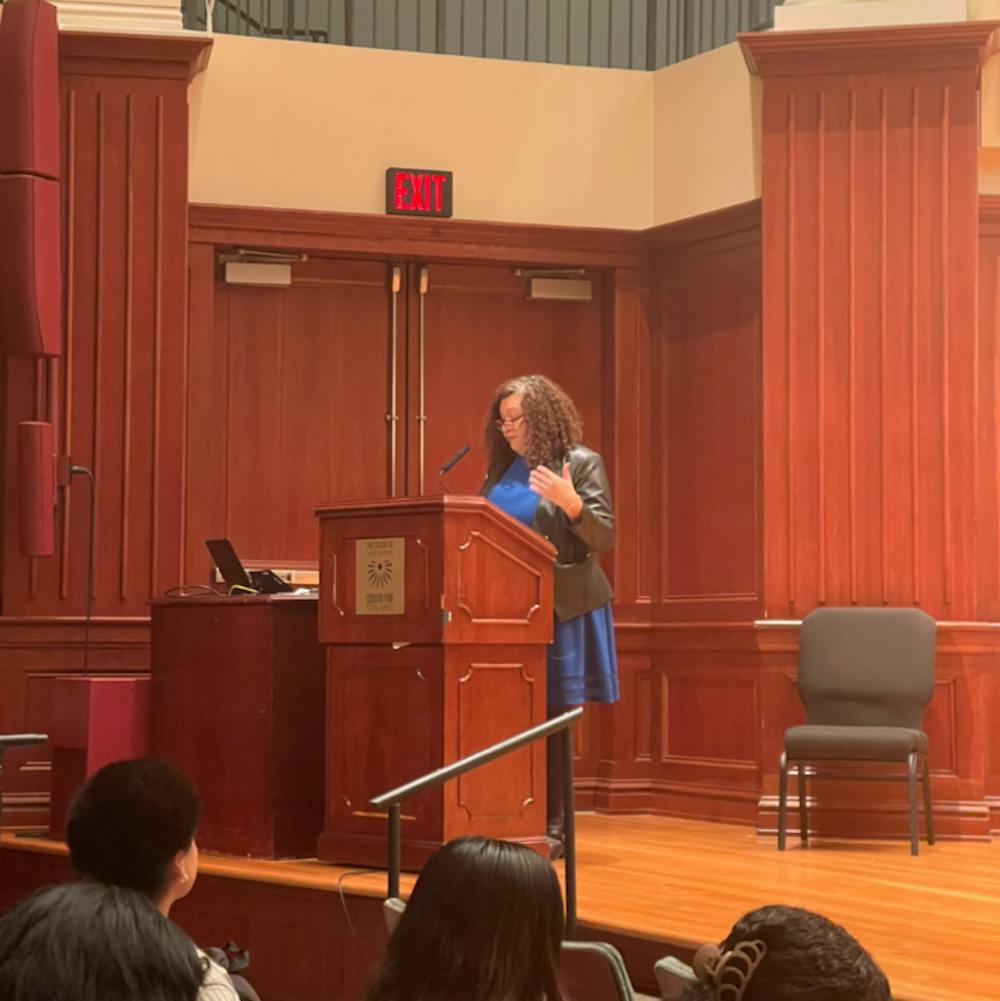By Myara Gomez
Staff Writer
Dr. Lorgia García Peña spoke to students about her research in a presentation entitled “Latinx Colonialities in Global Perspectives” on Oct. 7 in Mayo Hall.
In her presentation, García Peña went over a lot of history that she had found in her research and she focused on the Dominican Republic and colorism within the people there. García Peña also mentioned the divide between Haiti and the Dominican Republic.
“I found it interesting learning about the divide between Haiti and the Dominican Republic, especially where the anti-blackness stems from within the island,” said senior African American studies major Mariama Sillah.
García Peña spoke about colonized oppression and racism that Black Latinx people face everyday.
“To put simply, a Black Latinx person may be pulled over by the police for driving while Black and then detained and deported for being undocumented,” said García Peña.
García Peña was born in the Dominican Republic and then as a child moved to Trenton and even went to Trenton High School. According to her website, she attended Rutgers University and received a degree in journalism. She is currently a professor at Tufts University and teaches Latinx studies. García Peña is also one of the founders of Freedom University, a school where undocumented students can go to school without having to worry about tuition.
According to Tufts University, Dr. Lorgia García Peña’s studies are focused on colonialism, migration, blackness and diaspora, with a focus in Black Latinidades.
“Latinidad” is a term that describes culture and characteristics that all Latinx people share with one another.
At the end, García Peña discussed how racism is so deep that a Black Latinx person can be pulled over or stopped with no reasoning. Then, if they are undocumented, that can become reasoning later. These people then eventually get deported because of such instances.
“Colorism is very prevalent in many black nations within the African diaspora,” Sillah said.
García Peña made it clear that colorism is prevalent in these nations because of colonization and slavery among the people. The racism has been unfortunately passed down from generation to generation.
García Peña writes more about this topic in her book: “Translating Blackness.”







